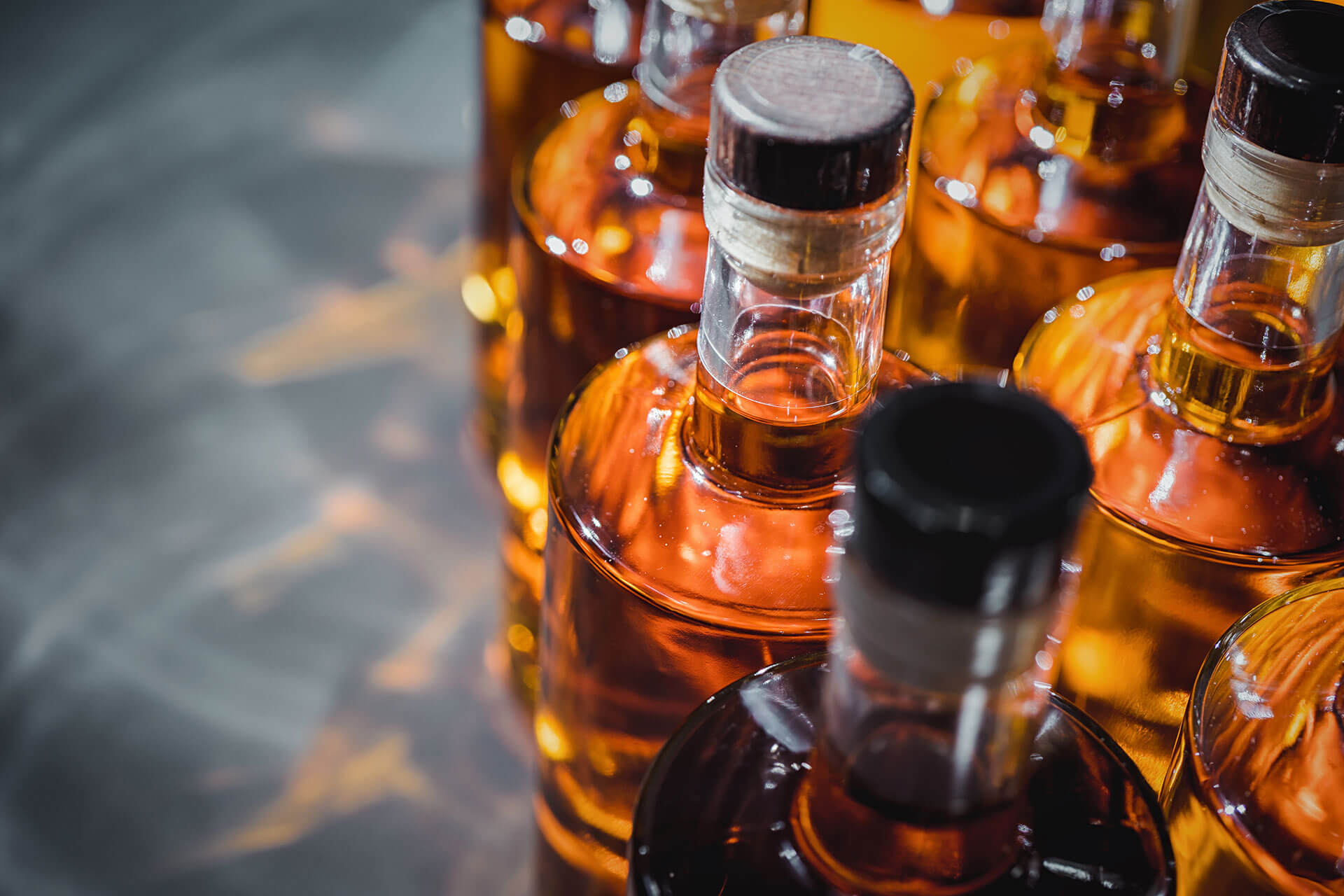Premiumization has been key to the success of our wine and spirits brands
Interviewed by Jacques Penhirin and Sirko Siemssen
Interviewed by Jacques Penhirin and Sirko Siemssen

Philippe Guettat has worked for Pernod Ricard since 1991 and served as Chairman and CEO of Pernod Ricard Asia since 2015. Over the past two years, the globally leading wine and spirits company has been adapting to changes in shopping and drinking habits due to COVID lockdowns – and it has also started to produce a Chinese malt whisky.
Guettat talked about the company’s moves to Jacques Penhirin, a Partner in Oliver Wyman’s Greater China office, and Sirko Siemssen, Global Leader of Oliver Wyman’s Retail and Consumer Goods Practice.
Inflation is really starting to have an impact, not only for us but for the entire alcohol industry. There is supply-chain disruption, a lack of manpower, and a higher level of demand. These are all sources of tension, and the costs of cardboard, plastics, and – especially – glass are rising. Also, the grape harvest was not very good this year in France, which has had an impact on the cost of making champagne and cognac.
It depends on where. It's not going to be easy in countries where there is a highly organized, modern off-trade alcohol industry – in Western Europe in particular. Asia is more fragmented; there’s more on-trade; and we have pricing power because we've been investing in our brands’ equity. We believe our consumers and customers will understand the challenges and continue patronizing our brands.
A central part of this model is premiumization. We have been investing a lot in our wine and spirits brands, and they are very well established. We're tightly controlling the level of supply in order to maintain a healthy level of pricing. We are a reasonable luxury spend with an in-depth presence in different geographies. We are pretty resilient, and there is robust consumer demand. But this time, we might have to raise prices in categories where we normally have less pricing power.
From February 2020 up to the end of that year, we were extremely centralized in our response. After that, our monitoring became more regional, and we adapted to local markets.
In China there’s been some revenge spending. People who couldn't travel have started again to go out, and then they spent more in nightclubs, bars, and restaurants. This helped to compensate. In Southeast Asia, however, people completely stopped consuming when the boarders were closed. Much of the demand seemed to have vanished during that period, but with the impact of COVID softening and boarders reopening nowadays, we are gradually recovering.

In China, it has remained similar. Of course, we had two closings of on-trade, so off-trade consumption is up a bit. Off-trade demand for spirits in China centers very much on the two festivals – mid-autumn and Chinese New Year. But every time on-trade reopens – in Hong Kong, Taiwan, or even Japan – people come back. It's a fundamental human need to get together, have fun, and share.
The big increase is in e-commerce, which happens through various platforms – mostly JD.com and Alibaba, but we have our own stores as well. We had laid down the infrastructure, especially in China, and were already making progress. With COVID, our e-commerce sales have been booming, not only in China, but in places where we didn't have e-commerce before, such as Hong Kong and Singapore – whenever local regulation allows it, which is not everywhere in our industry.
Our voluntary attrition rate was around 10% last fiscal year in Asia, which is below market level. This is mainly due to the strong performance of our business in Asia despite the pandemic, and because we have been investing in our people, ensuring competitive pay and benefits even during these unprecedented times.
Five or six years ago, we were struggling to recruit digital talent. Since then, we have reinforced the pool of talent at global level, and today we are becoming much better at doing it. We've been able to build a community and credentials. People can see the success stories of others who have joined us, and there’s a positive virtuous cycle now. We have a pretty good bench of talent now in e-commerce, and we are developing a lot in social media and search engine optimization. We have embarked on a strong digital transformation at the group level and have a strong pool of data scientists.

We are building a distillery in Emeishan, and our ambition is to produce a malt whisky of international standard and quality with a Chinese touch – both for China and the rest of the world. We started producing in August 2021, but the timing depends on the master distiller. It's the first time we've distilled here, and we have to monitor how the stock progresses and ages.
We cannot be priced outside of the market. We want to have a long-term presence and a long-term impact in China. Chinese malt whisky will evolve in a competitive environment, and there are other brands coming from Scotland, Ireland, the United States, and Japan. So it will have to be competitively priced for its quality and for its functional and emotional experience.
Other discretionary expenses, such as travel, have been constrained. People have an aspiration to make the most of the moments they have – to make them more memorable. That makes them want to drink better.

Voices of the Industry
HOME
Voices of the industry
Foreword
How Retailers Are Turning Upheaval Into Opportunities
Rami Baitieh
To Be The Best Digital Retail Company, We Have To Put People At The Center Of Our Activities
Duncan MacNaughton
Consumer Goods Manufacturers must listen to their workforce
Silviu Popovici
we put sustainability at our core, to create positive change for both planet and people
Thomas Jonas
Fy will feed astronauts!
Marcel Haraszti
We made one of Europe’s most ambitious retail transformations happen during COVID
Malina Ngai
We’re working relentlessly to promote inclusion and diversity
Philippe Guettat
Premiumization has been key to the success of our wine and spirits brands
Nina Jönsson
Our store of the future must be a destination: full of inspiration, innovation, and sustainability
Richard McKenzie
We built our technology system for grocery
